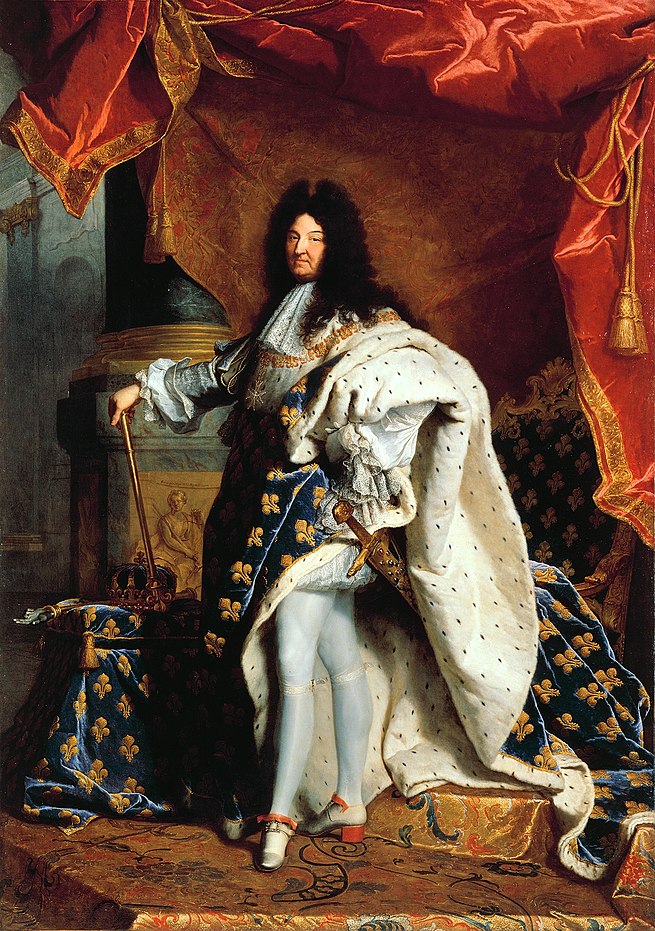
Main Difference
The main difference between Absolute Monarchy and Constitutional Monarchy is that the Absolute Monarchy is a form of government in which the monarch has absolute power and Constitutional Monarchy is a type of monarchy in which power is restricted by a constitution
-
Absolute Monarchy
Absolute monarchy (or absolutism as doctrine) is a form of monarchy in which the monarch holds supreme autocratic authority, principally not being restricted by written laws, legislature, or customs. These are often hereditary monarchies. In contrast, in constitutional monarchies, the head of state’s authority derives from and is legally bounded or restricted by a constitution or legislature.The popularity of the notion of absolute monarchy declined substantially after the French Revolution, which promoted theories of government based on popular sovereignty.
Some monarchies have a weak or symbolic legislature and other governmental bodies which the monarch can alter or dissolve at will. Countries where monarchs still maintain absolute power are: Brunei, Eswatini, Oman, Saudi Arabia, Vatican City and the individual emirates composing the United Arab Emirates, which itself is a federation of such monarchies – a federal monarchy.
-
Constitutional Monarchy
A constitutional monarchy is a form of monarchy in which the sovereign exercises authority in accordance with a written or unwritten constitution. Constitutional monarchy differs from absolute monarchy (in which a monarch holds absolute power) in that constitutional monarchs are bound to exercise their powers and authorities within the limits prescribed within an established legal framework. Constitutional monarchies range from countries such as Liechtenstein, Monaco, Morocco, Jordan, Kuwait and Bahrain, where the constitution grants substantial discretionary powers to the sovereign, to countries such as the United Kingdom, Spain, Belgium, Sweden and Japan, where the monarch retains significantly less personal discretion in the exercise of their authority.
Constitutional monarchy may refer to a system in which the monarch acts as a non-party political head of state under the constitution, whether written or unwritten. While most monarchs may hold formal authority and the government may legally operate in the monarch’s name, in the form typical in Europe the monarch no longer personally sets public policy or chooses political leaders. Political scientist Vernon Bogdanor, paraphrasing Thomas Macaulay, has defined a constitutional monarch as “A sovereign who reigns but does not rule”.In addition to acting as a visible symbol of national unity, a constitutional monarch may hold formal powers such as dissolving parliament or giving royal assent to legislation. However, the exercise of such powers may largely be exercises strictly in accordance with either written constitutional principles or unwritten constitutional conventions, rather than any personal political preference imposed by the sovereign. In The English Constitution, British political theorist Walter Bagehot identified three main political rights which a constitutional monarch may freely exercise: the right to be consulted, the right to encourage, and the right to warn. Many constitutional monarchies still retain significant authorities or political influence, however, such as through certain reserve powers and who may also play an important political role.
The United Kingdom and the other Commonwealth realms are all constitutional monarchies in the Westminster system of constitutional governance. Two constitutional monarchies – Malaysia and Cambodia – are elective monarchies, wherein the ruler is periodically selected by a small electoral college.
Strongly limited constitutional monarchies may sometimes be referred to as crowned republics by certain commentators.The concept of executive constitutional monarch identifies constitutional monarchies with fewer parliamentary powers. As a result, constitutional monarchies may also be referred to as ‘parliamentary monarchies’ to differentiate them from executive constitutional monarchies.
